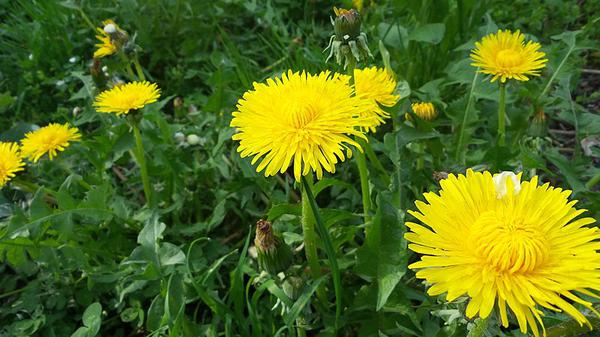Health benefits of Dandelion

Dandelion, a widely recognized plant with yellow flowers, offers numerous health benefits when included in a balanced diet.
Known scientifically as Taraxacum officinale, this herb is not just a common weed but a source of various medicinal applications.
People use its leaves, stems, flowers, and roots to harness health advantages that span from antioxidant protection to cancer risk reduction.
Antioxidants in dandelions, like beta-carotene and flavonoids, protect cells from damage. This protection is crucial as it combats the harmful effects of free radicals, which accelerate ageing and disease progression.
Additionally, bioactive compounds in dandelion may lower cholesterol and help regulate blood sugar, although more research is necessary to fully confirm these effects.
Dandelion also shows the potential to reduce inflammation based on studies performed on cells.
Its leaves are rich in potassium, a known agent in lowering blood pressure, suggesting another possible health benefit.
However, evidence supporting dandelion’s role in aiding weight loss and reducing blood pressure is still limited and calls for further scientific backing.
Remarkably, research has indicated that dandelion may slow the growth of various cancers such as liver, colon, breast, pancreatic, and prostate cancer in test tube experiments.
While these findings are preliminary, they open the door to future possibilities in cancer treatment.
Boosting the immune system is another area where dandelions may play a role. Studies have shown that dandelion extracts can inhibit the growth of Hepatitis B in lab settings.
However, more research is needed to solidify its impact on the immune system in practical, human applications.
Despite its potential benefits, dandelion consumption can lead to gastrointestinal side effects such as heartburn, diarrhoea, and upset stomach.
Therefore, individuals with gastrointestinal conditions should use dandelion cautiously.
Additionally, it’s important to note that dandelions can cause severe allergic reactions in susceptible individuals, particularly those allergic to certain other plants like ragweed and chamomile.
Before incorporating dandelion into a health regimen, consulting a healthcare provider is essential to ensure safety and appropriateness based on individual health profiles and conditions.
As research evolves, the scope of dandelion’s benefits will become clearer, potentially broadening its use in medicinal and dietary practices.
Image Credit: Sunasce007, CC BY-SA 4.0, via Wikimedia Commons
Image Reference: https://commons.wikimedia.org/wiki/File:Common_Dandelion.jpg










Leave a Reply